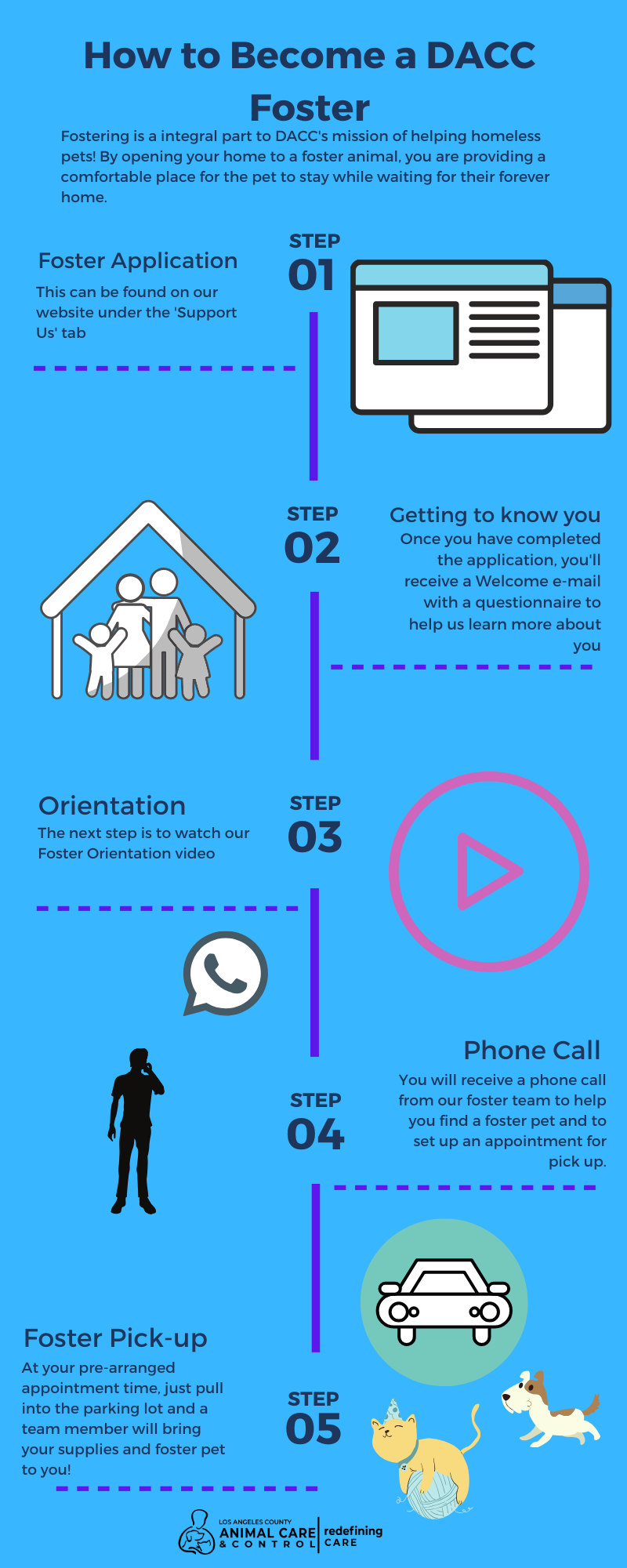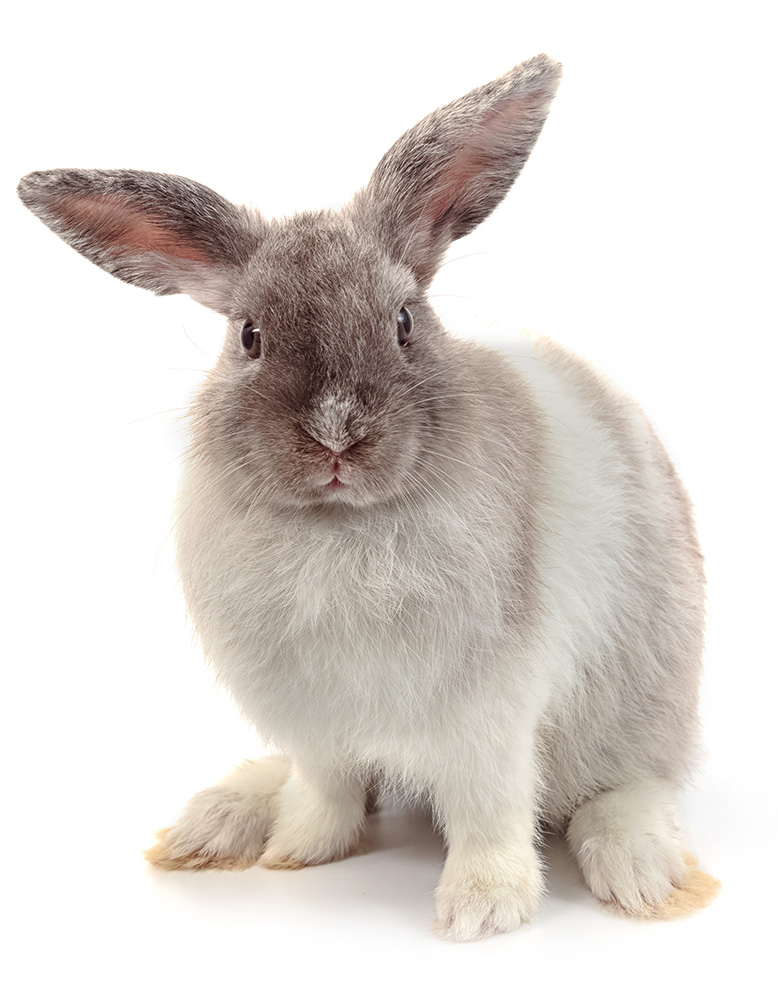VOLUNTEER
Become a Foster Parent
Become a Foster Caretaker
The LA County Animal Care and Control Foster Program plays an integral part in helping animals at our seven Animal Care Centers.
Fostering is a wonderful experience. You can feel good knowing you helped an animal in need and are giving back. Fostering is an ideal activity for those who are unable to have an animal long term or someone who wants to provide a temporary home. Even better, foster animals provide companionship and purpose.
The response to fostering for LA County Animal Care and Control has been tremendous, we appreciate everyone who has reached out. We wanted to update you on our biggest need: KITTENS! Did you know it’s kitten season? The time of year when thousands of kittens are brought to the animal care centers by concerned residents. The animal care centers should be a last resort for a kitten as they are much better off staying with their mother or in an individual home. Check out our Got Kittens? section on our website at https://animalcare.lacounty.gov/got-kittens/ for more information on how you can help kittens.
When kittens do need to come to the care centers, we are in dire need of foster caretakers to care for them until they are old enough to be adopted. The kittens are under eight weeks of age and may be eating on their own or they may need to be fed with a bottle or syringe. If you want to help vulnerable kittens, please fill out the Foster Application below.
The other type of animal we need help with are large-breed dogs, particularly pit-bull mixes. Small breed and purebred dogs get adopted very quickly, but it takes longer and more effort to place larger dogs. This is where you come in – can you open your home to a large breed dog? Please fill out the volunteer application below.
Thank you for your willingness to help.

Reasons to Foster
Cats or dogs needing foster home
We have a wide variety of cats and dogs looking for foster homes. Please consider opening your home to a pet while they search for an adoptive home
Requirements for all Foster Caretakers
To become a foster caretaker, you will need to do the following: Complete and submit a Foster Volunteer Application. Foster Volunteer Application
- Watch the Foster Orientation available online and read the Foster Manual.
- Accept the Foster Care Policy Terms and Agreement.
Caring for Special Need Animals
Please review our manuals for support on caring for your foster kitten or puppy

Frequently Ask Questions about Fostering

The DACC tries to provide food and some supplies to foster caretakers, but due to the large intake of animals needing fostering, this is not always available. Foster caretakers may need to provide space, food, and love for the animal(s). The animal care center will provide you with some supplies, medications, and veterinary care, if needed.
Yes, so that you can receive proper support we ask that those wishing to foster an animal from any of our six animal care centers live in the area the animal is fostered from. We do not foster animals out to individuals living in other states or countries.
No, but you may be asked to dispense medicine to your foster, so you will have to be comfortable following veterinarian’s instruction if fostering a sick or injured animal.
Yes, but keep in mind that it is always a health risk to expose your animal to other animals. The health risk is minimal if your animals are current on their vaccinations, maintain a healthy diet and lifestyle, and are not elderly or very young.
Fostering is a wonderful family experience and can build a foundation of philanthropy in your children. It is important to select an animal that is “age” appropriate with your children. You must also be diligent about providing guidance, instructions, and rules to your children about caring for an orphaned or special needs animal.
If your foster animal becomes available for adoption; foster caretakers get first priority to adopt their foster animal.As long as foster caretakers meet the animal care center requirements necessary for adoption and do not exceed the limit for owned animals in your city, you may adopt your foster animal.
Absolutely! Take pictures of them and show them to all the good people you know would be responsible owners. Return them to the shelter when they are ready and if you have time, be there on a busy day to “sell” them to the public. Bring them to the next community adoption event. DO NOT ever give the animal to anyone without having returned it to the shelter for spay/neuter surgery (if needed), the proper paperwork and receipts completed.
DACC staff may also demand the return of and or remove a foster animal from a foster home for any reason they deem necessary.
